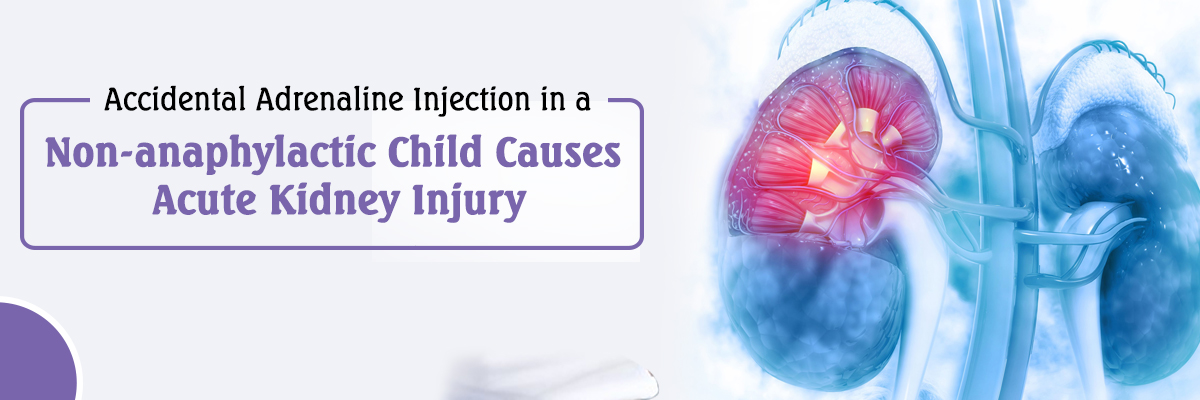
 IJCP Editorial Team
IJCP Editorial Team
Accidental Adrenaline Injection in a Non-anaphylactic Child Causes Acute Kidney Injury
A 14-year-old male was erroneously administered i.v. Adrenaline 6 mg (1:1000), which led to immediate severe abdominal pain, vomiting, gastrointestinal (GI) bleeding, along with severe respiratory distress.
The child was diagnosed with neurocysticercosis, and appropriate treatment was ongoing. This mishap resulted from an error by the hospital staff.
On examination, the patient was irritable; bilateral crept on the chest, abdominal guarding, and rigidity were noted. Clinical parameters showed – tachycardia, tachypnea, hypertension (148/98 mm Hg), and SpO2 76% at room air.
Investigations depicted:
Hemoglobin 11.9 mg/dl
Total leukocyte count 24,000
Platelets 2.68 Lacs
PT 17 seconds
aPTT 32 seconds
INR 1.23
urea 27 mg/dL
creatinine 0.8 mg/dl
CXR Pulmonary edema
ECG Sinus tachycardia
ABG Metabolic acidosis
Management
• Supportive – oxygen therapy, i.v. fluids
• Inj. Hydrocortisone
• Inj. Furosemide
• Inj. tranexamic acid and vitamin K
The patient responded well. Gastrointestinal bleeding was controlled, and blood pressure normalized within half an hour. Four hours later – hypotension, inj. Dopamine was administered – vitals normalized within 24 hours. Other symptoms included vomiting. Repeat investigation showed acute kidney injury (AKI) three days after mistaken adrenaline inj.
The patient was referred for hemodialysis. His kidney function test (KFT) normalized after one dialysis cycle. Follow-up reports suggested a normal kidney function test.
Adrenalin toxicity can lead to renal failure; it should be monitored cautiously.

IJCP Editorial Team
Comprising seasoned professionals and experts from the medical field, the IJCP editorial team is dedicated to delivering timely and accurate content and thriving to provide attention-grabbing information for the readers. What sets them apart are their diverse expertise, spanning academia, research, and clinical practice, and their dedication to upholding the highest standards of quality and integrity. With a wealth of experience and a commitment to excellence, the IJCP editorial team strives to provide valuable perspectives, the latest trends, and in-depth analyses across various medical domains, all in a way that keeps you interested and engaged.





















Please login to comment on this article